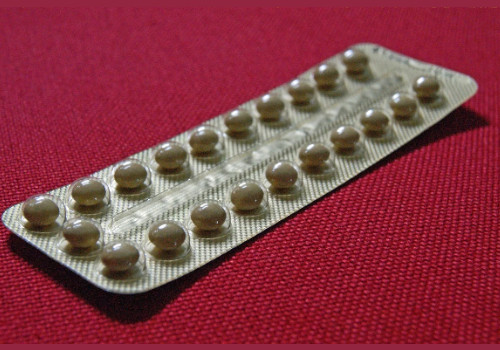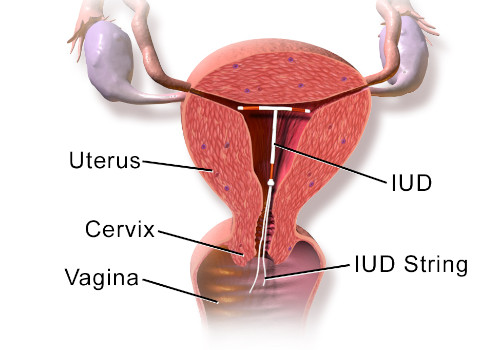The Best Birth Control Methods and Options to Avoid Pregnancy

What are the best birth control methods to avoid pregnancy? Pregnancy scare is not something too easy to deal with, especially for young couples. Due to a lack of education on this very subject, most people fail to take proper precautions and care during intercourse, and many false beliefs and myths lead to an unplanned pregnancy.
While there is contraception available in the market, people only use one or two methods to avoid pregnancy.
Contraceptions are not only used for avoiding pregnancy, but it also prevents the chance of contracting sexually transmitted diseases. Depending on your lifestyle and the cost and side effects of contraception, contraception methods can differ.
Although people hardly consider all these factors while using contraception and stick to only one kind of contraception, you can use several contraceptives to avoid pregnancy. Let’s have a look.
Best Birth Control Methods
What is birth control? the method of preventing unwanted pregnancies, particularly through use of contraception.
Birth control methods indeed start and end with the usage of condoms for common people. But to many people’s surprise, there exist several kinds of birth control, ranging from medical surgeries to hormonal injections. However, it largely varies from person to person and their choices of having plans.
The decision of choosing the right birth control depends on the following factors:
1. The effectiveness of the birth control or how fail-proof your methods need to be.
2. Plans for future pregnancy.
3. Whether you have a regular partner in caring about.
4. Whether you need it to prevent Sexually Transmitted Diseases.
5. If you are a woman, whether you are okay if the birth control method affects your period cycle.
6. To what extent the cost matter.
Depending on your answers to the abovementioned questions, a man or woman can plan their long term birth control method.
People might nurture the wrong conception of having a limited birth control method available in the market.
Still, the truth is the options of birth control methods can be categorized into two different sections.
The most common and famous category is the pre-coital birth control methods and post-coital birth control methods or emergency birth control methods.
Pre-Coital Birth Control Methods
1. The Condoms
Condoms are the most common and famous form of birth control method to avoid pregnancy worldwide. Condoms do not only protect you from preventing pregnancy, but it stops the transmission of any sexually transmitted diseases as well. (1)
It is cost-effective, easy to carry, and readily available in nearby medical stores as well.
Condoms are generally rolled onto an erect penis before having vaginal contact and prevents the semen from entering the uterus and the fallopian tube.
Condoms are best anti pregnancy methods. It is hormone-free; thus does not cause any problem to period cycle in women. However, if not used properly, condoms can tear easily. Also, many people are allergic to latex condoms, thus limiting their choice.
2. Female Condom
Diaphragm or female condom is a popular female birth control options in Western countries. It is 95% effective in preventing pregnancy. Female condoms are essentially latex-free, a long plastic pouch that goes inside the vagina of a woman to prevent the semen from swimming up to ovaries.
The female condom rings on both ends to fit and hold the liquids during ejaculation properly.
One of the advantages of using a female condom is that you can wear it 8 hours before having sex; thus, it does not kill the mood.
However, female condoms are not readily available in developing countries and more expensive than male condoms. Also, it is slightly less effective at preventing STDs.
Post-Coital Birth Control Methods
1. Contraceptive Pills

Emergency contraceptive pills or ‘The Morning After’ pills are common in case you end up having unprotected sex or the condom tears up in between sex.
Although it is called the morning after pills, emergency contraceptive pills can be taken within 72 hours of having unprotected sex.
Although it is not as effective as condoms, contraceptive pills are 85% effective in preventing pregnancy.
However, as the emergency contraceptive pills project hormones into your body, it can cause nausea, vomiting, and it can delay your period cycle as well.
2. IUD (Intrauterin Device)

In the case of post-coital birth control methods, IUDs are a lot more useful than emergency pills, and the possibility of getting pregnant after using an IUD is less than 1%.
IUDs are small ‘T’ shaped copper and plastic device that projects progesterone hormone into your body, and it can be fitted inside a woman’s uterus by a trained healthcare provider only.
However, in the case of some women, the use of IUD can cause irregular vaginal bleeding.
Apart from the abovementioned categories, the birth control methods can be categorized into another segment as well – Temporary and Permanent birth control methods.
The use of the abovementioned pre-coital and post-coital birth controls has little to no medical health care involvement. It has no future severe consequence to your body or pregnancy.
This is why all these four birth control methods can be included in the segment the temporary contraception.
Types of Temporary and Permanent Birth Control Methods
Temporary Birth Control Methods
Temporary birth control usually involves medically stimulated contraception that generally allows the woman to avoid pregnancy for a certain period.
Among these temporary birth control methods, the effectiveness and the cost vary from one another to a greater extent.
Although none of them protects you from contracting STDs, these contraceptives are familiar to Western Countries.
ALSO READ: Pregnancy Precautions
a). Oral Contraceptive Pills
According to a survey that has been done in Australia, oral contraceptive pills are mostly used by Australian women. It is a birth control method for women.
It is a pill that is taken every day, and these contraceptive pills contain progestin hormones. These pills are reported to be highly effective; however, it can only be available through prescription.
b). The Contraceptive Implant
It is another temporary birth control method that releases progesterone in women’s body.
It is a small flexible rod that is placed under the skin of the upper arm. However, it needs a medically trained worker for the purpose of insertion and removal.
c). Contraceptive Injection
Another relatively successful temporary birth control method that lasts up to three months and is very cost-effective.
It contains the hormone progesterone. However, these injections can cause irregular periods or bleeding if not suited.
d). Contraceptive Ring
Another very popular temporary contraceptive method that is mostly used by the women of the Western Countries.
It is a flexible plastic ring inserted into the vagina, releasing estrogen and progesterone.
ALSO READ: 11 Noticeable Symptoms of Baby Boy During Pregnancy
Permanent Birth Control Methods
Permanent birth control methods or sterilization are available for both men and women. These birth control methods can be done only by trained doctors because it involves small procedures of surgery.
Sterilization is said to be irreversible or very hard to reverse; in recent studies, it has been shown that these birth control methods can be changed. However, the claim is still under process and awaiting confirmation.
There are two types of permanent birth control methods—Tubal Ligation for women and vasectomy for men.
1. Tubal Ligation
Tubal ligation is a type of birth control methods for women. Through the surgery of tubal ligation, the fallopian tubes of a woman are tied and sealed.
It prevents both the egg and the sperm from meeting each other and thus completely stops getting pregnant. It is one of the common forms of contraception used by American women.
However, tubal ligation is not said to be 100% effective, and it does not prevent STDs.
2. Vasectomy
It is a type of birth control methods for men. Vasectomy or male sterilization involves the blocking of Vas deferens, the tubes in the male reproductive system. Thus, vasectomy provides the complete prevention of the sperm out of the testes.
This process does not affect the ability to ejaculate or does not also affect the sex lives.
Unlike tubal ligation, vasectomy is 100% effective except in some very rare cases. However, it does not prevent STDs.
Final Words
There are indeed many different types of birth control methods available for both men and women.
The person taking the help of a particular birth control method should go through the side effects and their tolerance to taking that birth control for a long time.
Also, if it is for a woman, it is advisable to take the doctor’s opinion first before carrying on with any hormone-induced birth control.





